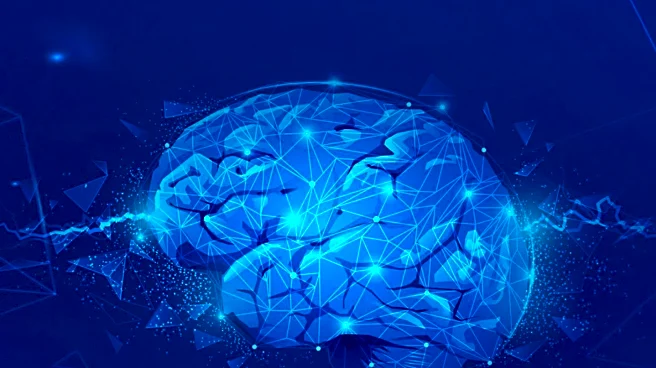What is the story about?
What's Happening?
A recent study has explored the immune signatures associated with major depressive episodes (MDE) with and without recent suicide attempts (SA). The research identified three main dimensions: immune modulation and growth factors, cellular immunity, and neuroinflammation. MDE was characterized by reduced immune modulation proteins and growth factors, a shift towards innate immunity, and subtle neuroinflammation. While no significant differences were found between MDE patients with and without SA, several markers distinguished these groups from healthy controls. The study highlights the complex interplay between immune dysregulation and depression, suggesting that immune-inflammatory processes may play a role in the pathophysiology of depression and suicidal behavior.
Why It's Important?
Understanding the immune system's role in depression and suicide attempts could lead to new diagnostic and therapeutic strategies. The findings suggest that immune modulation and growth factors, as well as shifts in cellular immunity, are involved in depression, potentially offering new biomarkers for diagnosis and targets for treatment. This research could pave the way for personalized medicine approaches, where treatments are tailored based on an individual's immune profile, improving outcomes for patients with depression and reducing the risk of suicide.
What's Next?
Further research is needed to validate these findings in larger cohorts and to explore the potential for immune-based interventions in treating depression. Longitudinal studies could provide insights into how immune signatures change over time and in response to treatment. Additionally, investigating the role of specific immune cells and cytokines in depression and suicide attempts could uncover new therapeutic targets.
Beyond the Headlines
The study highlights the potential for integrating mental health and immunology, suggesting that mental health disorders may have a biological basis that can be addressed through medical interventions. This could reduce stigma and improve the understanding of depression as a complex interplay of biological, psychological, and social factors.
















